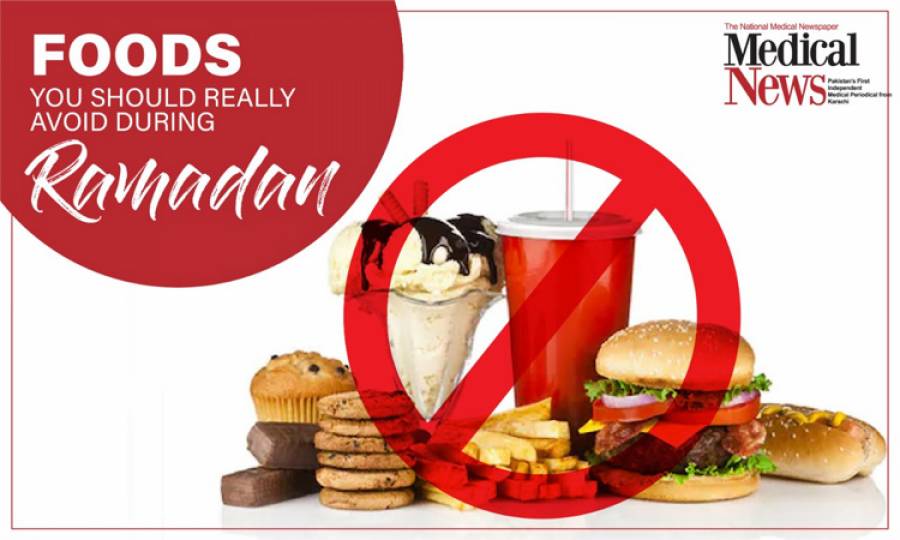Food Items You Should Really Avoid During Ramadan

Since the blessed month is upon us, it is essential to take care of your diet. Not to mention the hot and humid weather, which makes fasting quite difficult, this certainly does not mean you have to go to extra lengths to work on your health. That's not what we're here for. Taking care of your diet, especially during Ramadan, means consuming foods that help maintain your energy levels and avoid the unhealthy food temptations you get in this month.
Individuals who prefer to fast should be aware of what happens during the fasting period; unhealthy eating habits might cause discomfort and other health problems.
Oily Food
Well, oily food and Ramadan are not mutually exclusive, and it is extremely hard to resist the temptations when you have a spread in front of you. There's no denying that fatty foods are unhealthy. Also, keep in mind that those rolls, samosas, and pakoras have a large percentage of the daily required fat. So, think twice before you go for the second round.
Caffeine
Caffeine withdrawals are sure irritating but what's more irritating is a dehydrated body and insomnia. Having a cup of coffee in sahoor will have you longing for water all day long. Meanwhile, consuming it late at night will only disturb your sleeping pattern.
Refined Carbs
These foods, such as sugars, white flour, pastries, doughnuts and croissants, provide satisfaction for three to four hours and are low in essential nutrients. Replace your refined carbs with whole wheat bread and pasta. Dried fruits like dates, walnuts and almonds are also great food options. They can make you feel full for long hours and improve your productivity throughout the day.
Carbonated Drinks
After a whole day of fasting, the most important day is to make up for all the lost water. It is essential to indulge in the correct type of beverage to stay hydrated. Drinking processed beverages and carbonated drinks are usually high in sugar. It raises your risk of being overweight or obese, as well as causing bloating and gas, which can lead to indigestion. To quench your thirst, stick to ordinary water and coconut water.
Excessive Salt
Salt is one of the ingredients you can accidentally have too much of without even knowing because it goes in almost everything.
Salt is necessary for the body, but only in moderation. The issue with salt is that it makes you thirsty. As a result, increased salt intake might make fasting uncomfortable, leading us to the conclusion that you should eat nutrient-dense, satiating foods and drink enough water.
Trending
Popular
Sindh pledges vigorous action to prevent poliovirus transmission
-
PMA stresses health equity on World ...
04:08 PM, 9 Apr, 2024 -
Dow University’s new rabies vaccine ...
12:18 PM, 28 Mar, 2024 -
IRD role lauded in advancing ...
02:53 PM, 12 Mar, 2024 -
Over one billion people worldwide ...
09:48 AM, 5 Mar, 2024




